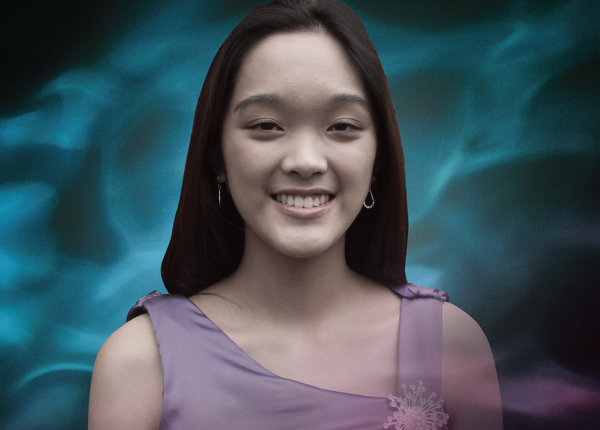Q&A WITH 15-YEAR-OLD PIANO SOLOIST NATALIE TAN
Posted on November 3, 2017

Natalie Tan is the winner of PYP’s 2016-17 Piano Concerto Competition. She will perform Frédéric Chopin‘s Piano Concerto No. 2 at PYP’s Beethoven’s 5th performance on Saturday, November 11, 2017 at the Arlene Schnitzer Concert Hall. Read her full bio here.
How long have you been playing the piano?
For ten and a half years.
How is rehearsing for a solo different from your regular rehearsal?
I find that practicing for a solo with an orchestra is definitely a lot more difficult. I have to be mindful of the orchestral parts and make sure that what I’m playing is going to match with their harmonies, dynamics, and tempo. When I practice a piece that is solely for piano, there is a lot more freedom and tolerance for different interpretations.
What have been the biggest challenges in preparing for this piece, and how are you overcoming them?
The biggest challenge in preparing for this piece has definitely been the mental aspect. I’ve played and listened to this piece for a little over a year, and it has been hard to come up with more interesting things to pay attention to each and every time I pull the piece out. It can get very frustrating and tiring at times. Another challenge that I faced with this piece was definitely technical. I learned the third movement first for the Metro Arts Young Artist Competition and there were notes everywhere and they never stopped. I think at first it was hard to master, but it got a lot easier after I realized how the piece worked and which way to learn the piece was best.
Can you tell us about the piece you will be performing, please?
The Chopin Piano Concerto No. 2 is in f minor and was written in 1829 when Chopin was around 20 years old before he had left for Paris. Written before the Concerto No. 1 in E minor, it was given an opus number of 2 because it was published second. The second movement was composed with a young woman named Constantia Gladkowska, a singer with whom Chopin eventually became friends with, in mind. At the time, Chopin had developed and intense infatuation with her and wrote that he “had found his ideal, whom [he] worship[s] faithfully and sincerely”. Then, drawing upon his Polish roots, Chopin composed the third movement, full of mazurka-esque rhythms.
Critics often say that Chopin had no interest in writing for the orchestra, and very rightfully so, since Chopin only wrote two concertos in his lifetime. However, it made a very profound impression on several musicians, one being Lizst, who described it as “of ideal perfection. It’s expression now radiant with light…”
In your own words, how would you describe PYP?
My perception of PYP has always been that of a very distinguished organization. It has a reputation for being a really highly regarded youth orchestra, competitive to the extreme, but also incredibly successful. Since playing the piano has always been a solo, and rather lonely, endeavor, I have always seen PYP as being a great community of musicians of which I have been quite envious of. I am honored and lucky to know and be friends with many of the people who have been a part of PYP’s musical world.
What are your plans after high school?
After high school, I plan to go to college and continue studying. My dream is to become a doctor which, of course, requires lots of studying!
Are there any ways that participating in music and PYP has helped you in yours educational career?
Participating in and learning music has really helped me to develop a sense of myself as a person. There are many aspects to music that can be really appealing to a student. The first one that I would say is most important is discipline. The amount of practice and dedication that one needs to be able to really learn an instrument is incredible. I am still working on it, but I truly believe that practicing has helped me to become more focused and driven. Another aspect to music and piano playing is that it really allows you to be creative and also expands your ability to embody different moods and emotions. It allows you to become more flexible with yourself emotionally and socially as well.
Even as a pianist, PYP in itself has always been present in my life. I think the greatest impact it had was that I was able to become friends with (through camps) and connect with people who had the same musical interests as I do and understand musical jargon that other people normally wouldn’t understand. It has created a group of people that I heavily rely on for support in day to day life.

1 Comment